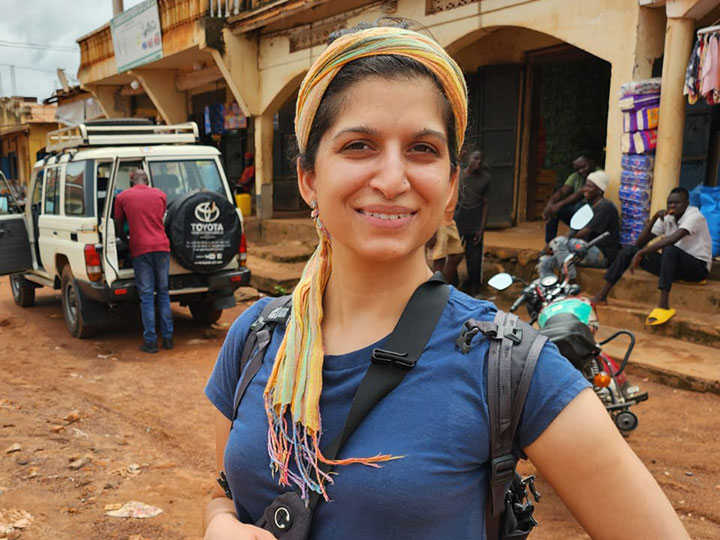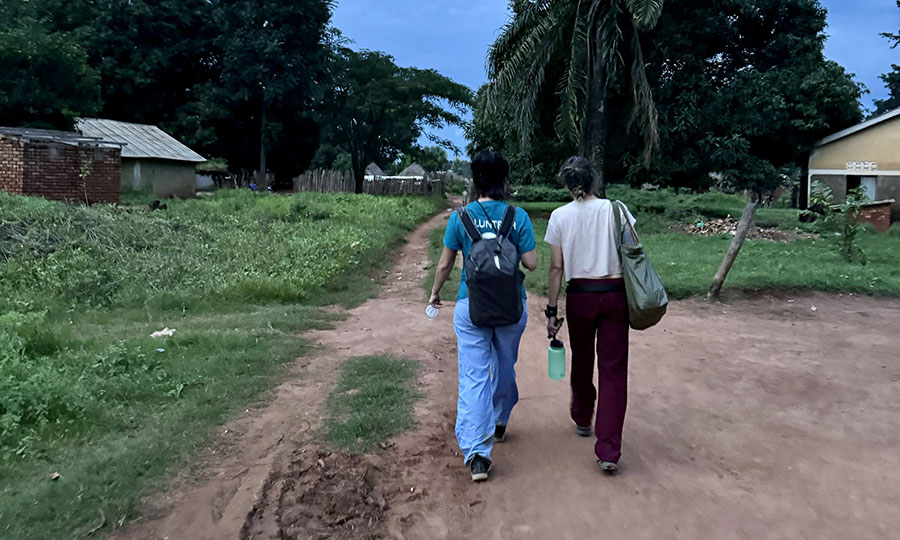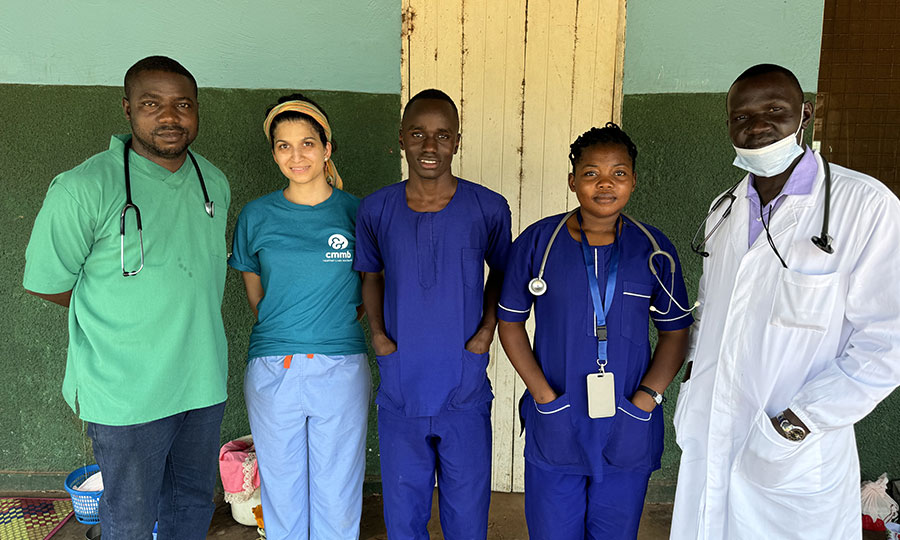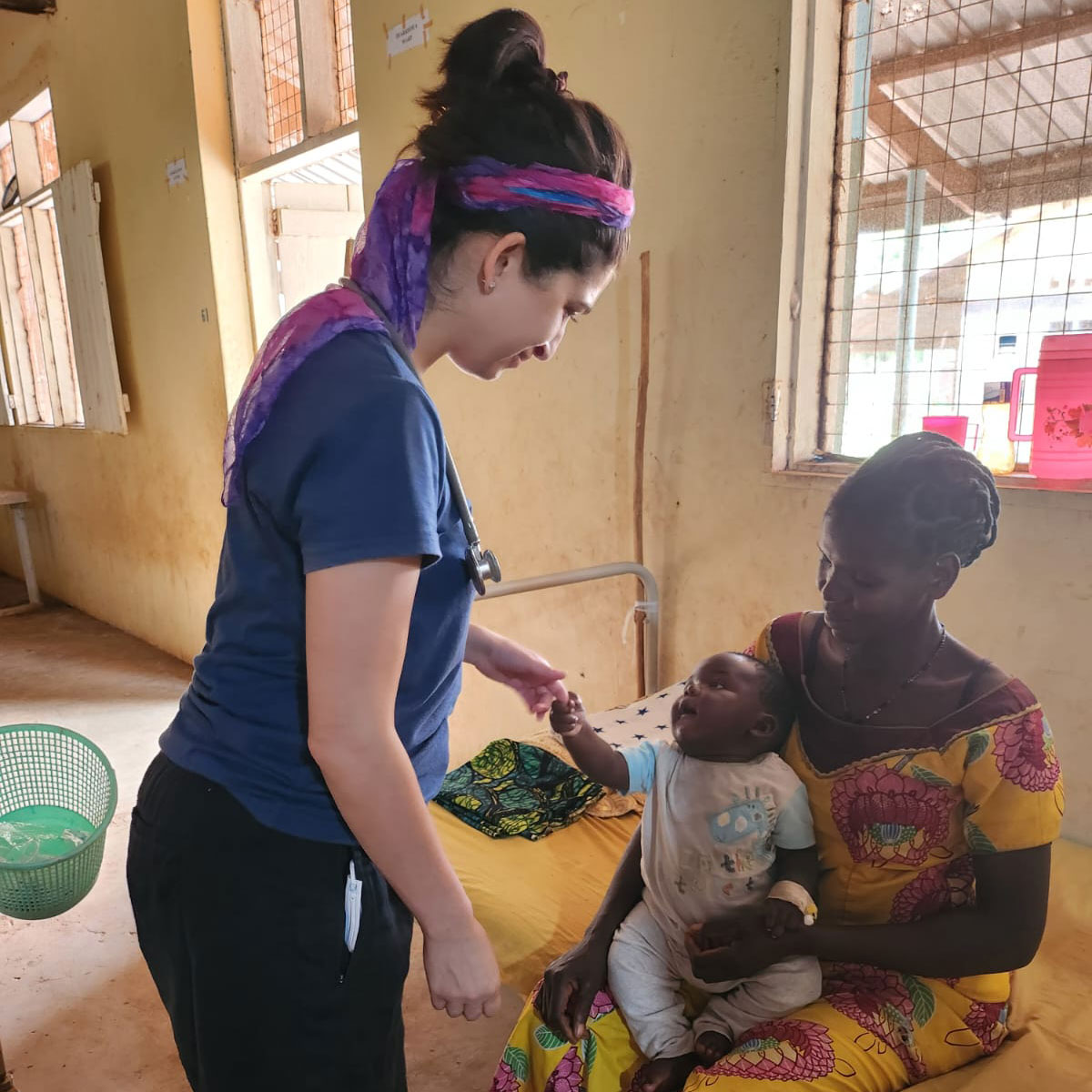Volunteer Perspective: Strengthening Care at St. Theresa Mission Hospital

Dr. Mahvash Madni joined CMMB as a volunteer pediatrician with over 11 years of experience. She holds a fervent belief that every child deserves healthcare. This belief led her to St. Theresa Mission Hospital in Nzara, South Sudan. Dr. Mahvash has helped expand the knowledge, skills, and confidence of the dedicated medical staff at the hospital. Here she reflects on the challenge, the loss, and the joy of giving herself to service.
The road to Nzara

The picturesque drive into Nzara took me pleasantly by surprise. I am a person who likes to observe my surroundings, to let color and light heighten my experiences and bring me the energy I need to get through even the most challenging of days. Driving into Nzara filled me with that energy.
Lush greenery is the backdrop to the small mud and thatch homes that fill the town. There are various animals, and the sound of children playing fills the air. As I walk to the hospital, people go about their daily routines. Our smiles widen as we approach one another, and all are quick to wave and ask, “how are you?!” Children run up to me, touch my hand, and share smiles.
Though I am a stranger, everyone treats me with enthusiasm and kindness. It fills me with a sense of responsibility and inspiration to use my time here and continue the work of volunteers who came before me to serve this community well.
The pediatric ward is an old building but tends to retain a lot of heat and humidity during the afternoon hours. So, the area outside the ward is often filled with families and patients sitting with one another to cook their meals and cool off.
Challenge meets commitment

I spent my first weeks observing the staff and the challenges they experience. My scope of work as a physician here is in training—to help expand the knowledge and skills of St. Theresa’s dedicated health workers. I have an opportunity to help my colleagues here grow in confidence and skill, which is essential considering so many of our patients are critically ill children. Malaria, pneumonia, sepsis, and malnutrition play a significant role in morbidity and mortality in Nzara.
A major challenge is the lack of equipment and medications. I was made aware of this prior to my arrival, but facing the frustrations of it firsthand has a different impact. I know the staff feels the same way, and I am teaching them to use what they have to the maximum capacity. But to do so requires a new way of thinking—this has been the hardest thing to teach.
Silent suffering
We recently admitted a baby in severe respiratory distress. The infant was suffering from malaria, pneumonia, and dehydration. The baby required immediate care. This happened around 3 p.m. when staff were very busy in the outpatient and inpatient units. Not wanting to lose any time, I helped the mom gather her belongings. As the mother carried her baby, she was shedding silent tears. Her patience and silence despite her immense worry moved me. I was determined not to let her down.
We started intravenous antimalarials, antibiotics, and fluids right away. A nurse set up the nebulizer machine and conducted the chest physiotherapy, which is a process that drains excess mucous from the lungs. When I came in the next morning, I learned that the baby was still very sick with little to no improvement. We did not have the standard treatment option for this baby, but I showed the nurses how to administer an alternative using what was available. It was not ideal, but it was better than nothing. After a difficult night and precarious day, with continued care and attention, the baby started to very slowly improve. One week later the baby was active and playful and ready to head home.
The patience and silent suffering of this baby’s mother, like so many others, did not go unnoticed. Suffering and loss of human life, including those of babies, is handled differently in Nzara than what we are used to in the United States. The suffering, lack of resources, and the death of loved ones is dealt with quietly and patiently. The desperation and intensity of emotions that surround the critical cases and death of children in the US is not palpable here. If it exists, I do not see it or feel it as much. God’s will and faith are on the forefront of this strong and admirable attitude.
The story of this baby ended with hope and reassurance. Sadly, not all of them have the same ending. Despite our best efforts, we don’t always have the tools or any alternative to care for complex patients and, because of that, watching a child die has been truly heartbreaking. You remind yourself that you tried your best, but this does not make accepting your inability to do more any easier.
Finding motivation through education

I spend most of my day teaching and providing patient care—the two reasons I became a pediatrician. The medical team wants to learn. When I first arrived, I observed that most of the clinical staff were hesitant to aggressively hydrate sick children who were very anemic or malnourished. Over the course of my time, I have worked tirelessly to educate staff on signs of dehydration and oversaw the increased use of intravenous fluids. I have taught using patient examples and teaching rounds. It has been inspiring to see the team start to see how hydration does in fact save lives. This motivates me to keep going, teaching, and improving.
I am also motivated by the CMMB volunteers and staff. I am motivated by the hope and the appreciation of the community and hospital staff. I am pulled towards this continued goal and vision to make things better for St. Theresa Mission Hospital and the people of Nzara.